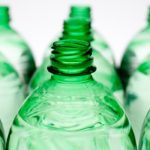 There is a growing consensus that something needs to be done about the amount of plastic waste produced by society. Most efforts to date have revolved around both making it easier for waste to be recycled, and discouraging people from using plastic in the first place.
There is a growing consensus that something needs to be done about the amount of plastic waste produced by society. Most efforts to date have revolved around both making it easier for waste to be recycled, and discouraging people from using plastic in the first place.
A new study from Tel Aviv University highlights a third approach – taking plastic out of packaging entirely. They describe a process of making bioplastic polymers that don’t require either land or fresh water, but are instead derived from micro-organisms that can feed on seaweed.
What’s more, the end product is biodegradable and produces no toxic waste, before being fully recyclable into organic waste. The team believe their product finally provides an environmentally friendly alternative to plastic.
Sustainable packaging
“Plastics take hundreds of years to decay. So bottles, packaging and bags create plastic ‘continents’ in the oceans, endanger animals and pollute the environment,” the researchers explain. “Plastic is also produced from petroleum products, which has an industrial process that releases chemical contaminants as a byproduct.”
A partial solution to this product can be found in bioplastics, which not only don’t rely on petroleum, but also degrade much faster. Traditionally however, bioplastics produce another environmental cost, as their production requires fertile soil and fresh water, which are not things that are in ready supply in much of the world.
The new process proposed by the researchers overcomes that challenge by using marine micro-organisms to produce the ‘plastic’. The end product, called polyhydroxyalkanoate (PHA), is then wholly degradable.
“There are already factories that produce this type of bioplastic in commercial quantities, but they use plants that require agricultural land and fresh water. The process we propose will enable countries with a shortage of fresh water, such as Israel, China and India, to switch from petroleum-derived plastics to biodegradable plastics,” the researchers explain.
With a consensus that society needs to unite to tackle plastic waste and clean up our oceans, solutions such as this could play a crucial role. The researchers have proved that it’s possible to produce bioplastic in a more sustainable way, and they’re now continuing to develop the process and are exploring the best bacteria and algae for producing bioplastics with various properties.